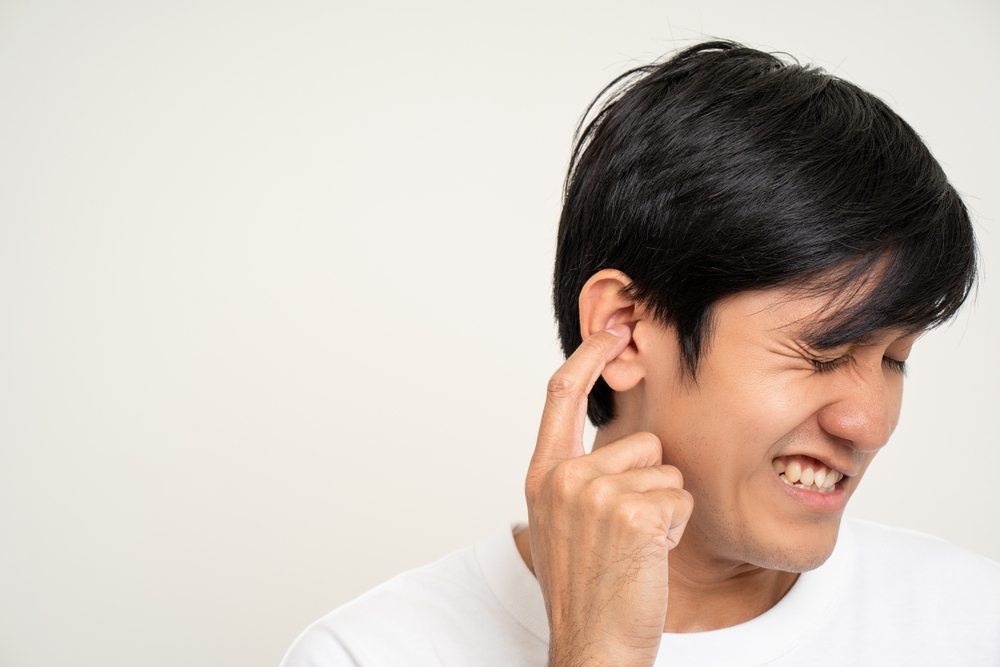Experiencing hearing loss can be alarming, especially when it happens suddenly in just one ear. Understanding the causes and seeking immediate treatment is crucial. This article explores what to do when you experience sudden hearing loss in one ear, the possible causes, and available treatment options.
Understanding sudden hearing loss in one ear
Sudden hearing loss in one ear can occur at any age and for various reasons, defying the common association of hearing loss with aging or severe ear trauma. This condition, known as sudden sensorineural hearing loss (SSNHL), can happen instantly or develop over a short period. With around 66,000 new cases reported annually in the United States, SSNHL is more common than many realize, yet it often goes undiagnosed or misdiagnosed. Many people discover this condition upon waking up, suddenly unable to hear out of one ear.
While it might seem like a temporary issue that will resolve on its own, it’s crucial not to ignore sudden hearing loss. Seeking prompt medical attention from a specialist is vital to prevent a potentially minor issue from developing into a permanent hearing loss. If the hearing loss is due to an injury or exposure to loud noise, immediate treatment to reduce inflammation is essential to avoid long-term damage.
What are possible causes of hearing loss in one ear?
There are several potential reasons for sudden hearing loss in one ear. Some of the most common include:
- Blockages: Earwax buildup can cause a blockage, preventing sound from reaching the eardrum. This is often caused by improper use of cotton swabs, which can push earwax deeper into the ear canal.
- Infections: Viral inner ear infections can cause inflammation in the ear canal, leading to hearing loss. If left untreated, this inflammation can cause permanent damage to the hearing nerve.
- Medication Side Effects: Certain medications are ototoxic, meaning they can cause hearing loss. These include some antibiotics, chemotherapy drugs, and diuretics.
- Trauma or Loud Noises: Exposure to loud noises or physical trauma to the ear can result in sudden hearing loss. In such cases, preventing further inflammation is crucial to preserving your hearing.
- Tumors: Though rare, a tumor could be the cause of sudden hearing loss in one ear, making it essential to seek immediate medical evaluation.
In about 90% of SSNHL cases, the exact cause remains unknown, which is why prompt diagnosis and treatment are so important.
Steps to take when you experience sudden hearing loss
If you suddenly can’t hear out of one ear, it’s important to take immediate action. Here’s what you should do:
- Seek Medical Attention: The first and most important step is to see a specialist as soon as possible. A professional can assess your condition, identify the cause, and recommend the appropriate treatment.
- Rest and Avoid Loud Noises: Resting your ears is crucial, especially if the hearing loss follows exposure to loud noise. While rest can often help your ears recover, it’s still essential to consult with a specialist to rule out any underlying issues.
- Treat Blockages or Infections: If your hearing loss is due to a blockage or infection, your specialist can clear the blockage or prescribe antibiotics to treat the infection. It’s important not to attempt to remove blockages yourself, as this could cause further damage.
- Monitor Medications: If you suspect that your hearing loss may be related to medication, speak with your doctor and hearing specialist. They can help determine whether an alternative medication is available.
Long-Term Considerations and Treatments
If the hearing loss is permanent, there are effective treatments available. Uneven hearing loss can strain the brain, leading to headaches, disorientation, and difficulty locating the source of sounds. Over time, untreated hearing loss can contribute to cognitive decline, including issues like memory loss, anxiety, depression, and even dementia.
Modern hearing aids offer a solution. Today’s hearing aids are not only powerful but also discreet and capable of enhancing conversation while reducing background noise. They can significantly improve your quality of life by restoring balance and clarity to your hearing.
Sudden hearing loss in one ear is not something to ignore. If you experience sudden hearing loss, find a specialist near you promptly to get the care you need.



